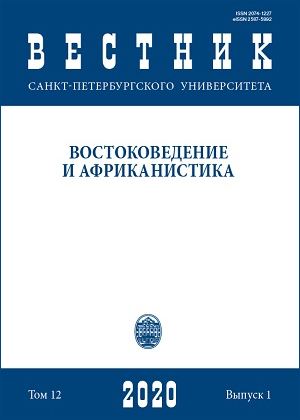Nigeria-China Relations: Impact on Power and Development in Nigeria
DOI:
https://doi.org/10.21638/spbu13.2020.110Abstract
Nigeria no doubt is one of China’s largest markets in Africa. The negative influence Chinese interest in the Nigerian economy has on her energy sector and on development generally is alarming and the rural areas are mostly affected. Rural development is a sine qua non of sustainable national development. Nigerian markets are flooded with Chinese products ranging from generators to rechargeable lamps which are mostly needed to power industries and also generate electricity. Dependency theory provided the theoretical construct for this paper. It was observed that these products such as rechargeable lamps and generating sets may be a welcomed development to cushion the effect of epileptic power supply in the urban centres and lack of electricity in the rural areas but the spillover effects on the Nigerian economy cannot be overemphasised. The paper also discovered the unfortunate situation of how contracts are awarded to Chinese firms in regards to the energy sector. The question which must be critically examined is can a bone be given to a dog for safe keeping? Based on these findings, the paper recommends that the federal government should genuinely and aggressively pursue the issue of rural development especially in terms of rural electrification.
Keywords:
relations, rural development
Downloads
References
Downloads
Published
How to Cite
Issue
Section
License
Articles of "Vestnik of Saint Petersburg University. Asian and African Studies" are open access distributed under the terms of the License Agreement with Saint Petersburg State University, which permits to the authors unrestricted distribution and self-archiving free of charge.





